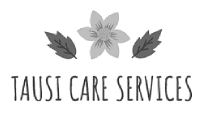NDIS Services: These are the range of support and assistance provided to eligible individuals with disabilities under the NDIS. It can include things like accommodation support, personal care, therapy services, and community participation activities.
NDIS Provider: An organisation or individual registered with the NDIS to deliver services and support to participants. NDIS providers must meet specific standards and requirements set by the NDIS Quality and Safeguard Commission.
NDIS Support: It encompasses the various types of assistance and aid provided to NDIS participants to help them achieve their goals and enhance their quality of life. Supports are tailored to each participant’s individual needs and may include both funded and mainstream services.
NDIS Quality and Safeguard Commission: The independent agency responsible for overseeing the quality and safety of NDIS services and supports. The Commission sets standards, conducts audits, handles complaints, and promotes best practices to ensure the protection and well-being of NDIS participants.
NDIS Code of Conduct: A set of principles and guidelines that all NDIS providers and workers must adhere to. The Code outlines expected standards of behaviour, ethical conduct, and duty of care towards NDIS participants, promoting respect, dignity, and empowerment.
NDIS Plan Management: It refers to the management of NDIS funds within a participant’s plan. Plan management options include agency-managed, self-managed, or plan-managed, each offering different levels of control and flexibility over how funds are used to access supports and services.
Support Coordination: Support coordination assists participants in navigating the NDIS system, accessing services, and implementing their NDIS plan. Support coordinators help participants identify and connect with service providers, understand their plan budgets, and build their capacity to manage their support independently.
Reasonable and Necessary Supports: NDIS funding covers supports and services that are deemed reasonable and necessary to help participants achieve their goals and improve their daily living. These supports must be directly related to the participant’s disability and contribute to their overall well-being and independence.
Early Childhood Early Intervention: ECEI supports children aged 0-6 years who have developmental delays or disabilities. ECEI providers assess children’s needs, coordinate early intervention supports, and assist families in accessing appropriate services to promote the child’s development and participation in everyday activities.
Specialist Disability Accommodation: SDA refers to accommodation for participants who require specialist housing solutions due to their extreme functional impairment or high support needs. SDA funding covers the cost of accessible housing, modifications, and ongoing support services for eligible participants.
Support Categories: NDIS supports are categorised into different groups based on the participant’s needs and goals. These categories include core support, capital support, capacity-building support, and assistance with daily living.
Review and Appeals: Participants have the right to request reviews or lodge appeals if they disagree with decisions made by the NDIA regarding their plan or funding. Reviews and appeals provide participants with avenues to challenge decisions and ensure their needs are accurately assessed and addressed.
Assistive Technology: Assistive technology refers to devices, equipment, or systems that assist individuals with disabilities in performing tasks, improving their independence, and enhancing their quality of life. Examples include wheelchairs, communication devices, and home modifications.
Specialist Support Coordination: Specialist support coordinators assist participants with complex needs or circumstances in navigating the NDIS system and accessing specialised supports and services. They provide intensive support and coordination to ensure participants receive the right assistance tailored to their requirements.
Supported Independent Living: SIL refers to accommodation arrangements that provide support for participants with disabilities to live independently in shared or supported accommodation. SIL funding covers the cost of staff support and other related expenses.
Personalised Budget: Each participant’s NDIS plan includes a personalised budget detailing the funding allocated to various support categories. The personalised budget is based on the participant’s goals, needs, and circumstances, and is designed to maximise their independence and participation in the community.
Reviewable Decision: A decision made by the National Disability Insurance Agency regarding a participant’s eligibility, plan, or funding that can be reviewed upon request. Participants have the right to request a review if they disagree with a decision made by the NDIA.
Support Worker: A support worker provides direct assistance and support to NDIS participants in their daily activities, such as personal care, household tasks, and community engagement. Support workers play a vital role in implementing participants’ NDIS plans and promoting their independence and well-being.
Goal Setting: NDIS plans are centred around the participant’s goals and aspirations. Goal setting involves identifying the participant’s desired outcomes and developing strategies to achieve them, with supports and services tailored to support their journey towards reaching these goals.
Understanding these key terms and concepts equips NDIS providers with the knowledge needed to deliver effective and person-centred support to participants. By embracing the principles of the NDIS and staying informed about its policies and processes, providers can enhance their ability to empower individuals with disabilities and facilitate their journey towards greater independence and inclusion.



























